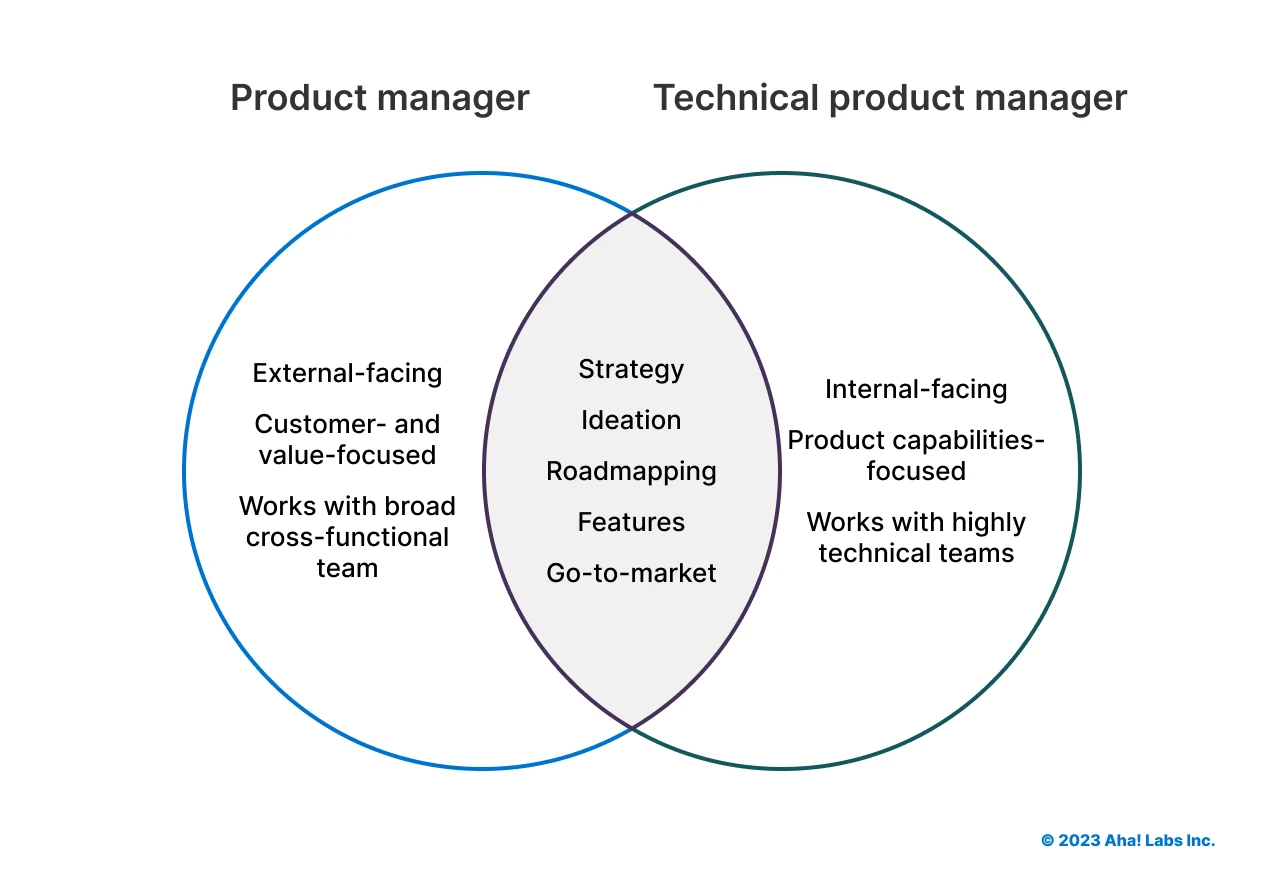
The Product Manager vs. the Technical Product Manager
Editor's note: This post was updated in February 2023.
A lot of people ask me about how to break into product management. I think that is because product management is a hot career track today. So much so that there are many variations on the role and title.
In fact, right now there are 1,690 job listings on LinkedIn seeking qualified technical product managers. There are thousands of job postings for digital product managers and principal product managers and even an upstream product manager. Oh, and another 14,553 listings for the generically-labeled product manager.
OK, so what is the difference between these different job titles? Let’s focus on the product manager and technical product manager since you would think that all product managers would have some technical chops.
You see a lot of articles that advise on whether product managers should invest in learning technical skills. In fact, that is usually one of the most popular threads on PM forums. That might lead you to think that technical product manager is a hybrid product management/engineering role. Not so fast.
Technical product managers bring a deep technical expertise to their role but still focus on the core best practices of product management. If you look closely at those 1,690 job descriptions, you’ll see that they are not all that different from the role and responsibilities of a regular ol’ product manager.

Product managers really, really love Aha! Roadmaps — try it free.
Both are responsible for:
Strategy: Setting a product vision and strategy
Ideation: Gather and promote the most relevant ideas into features
Roadmapping: Plan and prioritize what (and when) the product teams will deliver
Features: Define the “what” with user stories and requirements
Go-to-market: Work with cross-functional teams to deliver a complete customer experience
Yes, there are many similarities. And any good product manager will want to stretch and expand their breadth of knowledge into new areas. It is what separates rock-star PMs from their ho-hum counterparts — an insatiable desire to learn and grow.
However, I often see some nuanced differences between a product manager and technical product manager.
Product manager | Technical product manager | |
Degree | More likely to have a degree in business | More likely to have a degree in computer science or engineering |
Skills | More likely to be skilled in strategic thinking, customer empathy, project management, and presentation | More likely to be skilled in development methodologies, processes, product analytics, and tools |
Focus | Often customer-facing and involved in setting the overall product strategy | More focused on how the product works and tends to be more capabilities focused |
Teams | Collaborates with many non-technical teams, including sales, marketing, and support — and works with outside partners and other third-parties | Works closely with technical internal teams, including engineering and development, to write user stories and requirements |
Research | Studies the competitive landscape from a strategic business and go-to-market perspective | Evaluates competitors and the market for capability-oriented and emerging development and technology trends |
Technical knowledge can help product managers to communicate clearly and effectively with their engineering team. It can also give them insight into new development approaches and technical capabilities that might yield better results for customers.
Many companies will find that they excel with two product management roles — a business-minded PM and a technical PM. And others will determine that it is best to have one person leading product who can answer the “why” and the “what” and who can also engage in the “how.”
It is also worthwhile to point out that each company varies and titles do not always reflect exactly what people do. I have known technical product managers who did not have strong technical skills and product managers who transitioned into their role from software development.
However, regardless of title all product managers need to demonstrate the same “soft” skills necessary for executing on product management best practices — including clear communication, leadership, diplomacy, and compassion.
Build products like you always wanted. See for yourself — start a free 30-day trial.
Additional resources |


